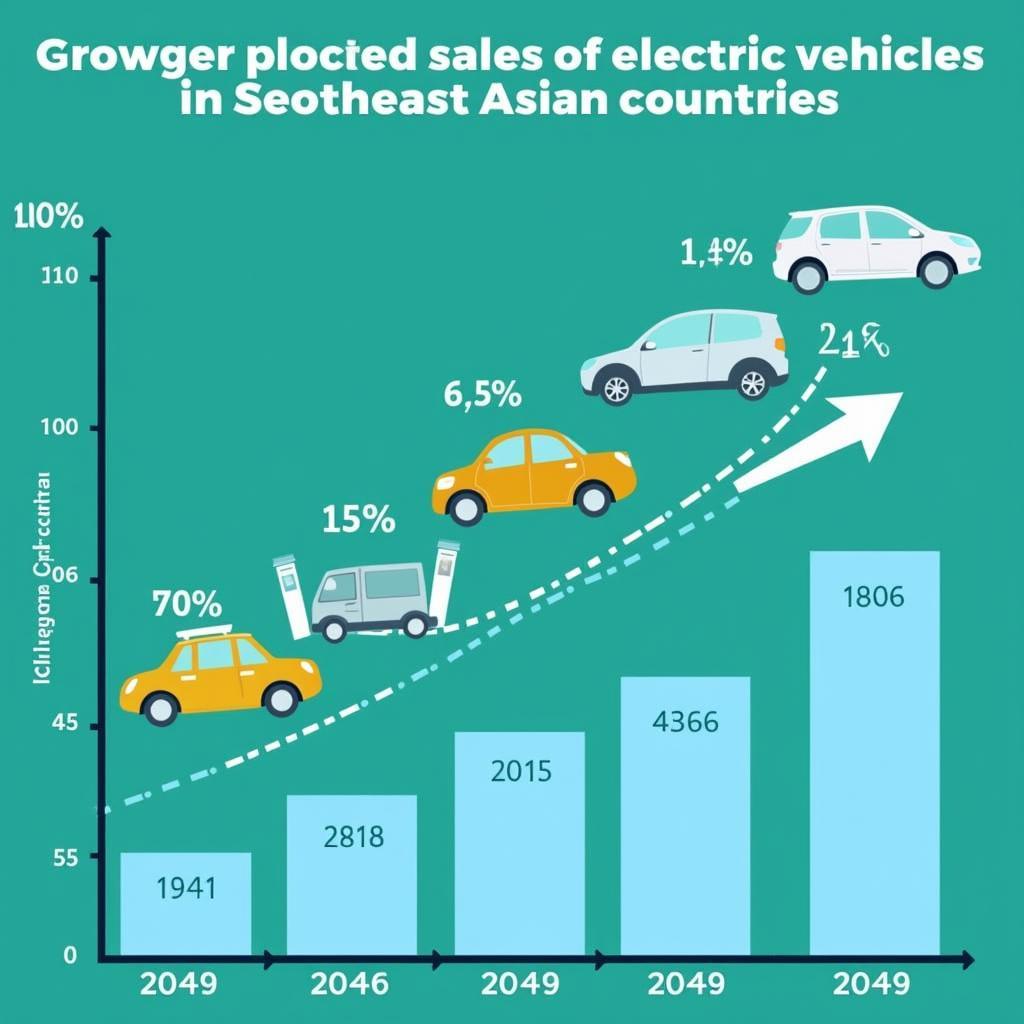The relationship between Asean And Taiwan, while lacking formal diplomatic ties, represents a multifaceted dynamic within the Indo-Pacific region. Driven by economic pragmatism and geopolitical considerations, the interaction between Southeast Asian nations and Taiwan continues to evolve amidst a backdrop of shifting regional power dynamics.
Economic Ties Bind: A Foundation for ASEAN-Taiwan Relations
At the heart of the ASEAN-Taiwan relationship lies a robust economic partnership. Taiwan, renowned for its technological prowess and manufacturing capabilities, has emerged as a significant investor and trading partner for many ASEAN member states. This economic interdependence has fostered closer collaboration in areas such as:
- Trade: Bilateral trade between ASEAN and Taiwan has witnessed substantial growth over the years, encompassing a diverse range of sectors from electronics and machinery to agricultural products.
- Investment: Taiwanese companies, seeking to leverage the competitive advantages offered by ASEAN economies, have made substantial investments in sectors like manufacturing, infrastructure, and services.
- Tourism: The rise of a burgeoning middle class in both regions has fueled a surge in tourism, with Taiwan becoming an increasingly popular destination for travelers from Southeast Asia.
Navigating Geopolitical Complexities: A Balancing Act for ASEAN
While economic ties form the cornerstone of the ASEAN-Taiwan relationship, it unfolds within a complex geopolitical landscape. The “One China” policy, adhered to by most countries worldwide, adds a layer of sensitivity to the interactions between Southeast Asian nations and Taiwan.
ASEAN, committed to its principle of non-interference in the internal affairs of other states, has maintained a delicate balancing act. While acknowledging the “One China” policy, ASEAN member states have also expressed a desire for peace and stability in the Taiwan Strait, recognizing its potential impact on regional security and economic prosperity.
People-to-People Connections: Fostering Understanding and Cooperation
Beyond the realms of economics and geopolitics, people-to-people connections play a crucial role in shaping the ASEAN-Taiwan relationship. Educational exchanges, cultural collaborations, and tourism have fostered closer ties between the people of both regions, promoting mutual understanding and appreciation.
 ASEAN-Taiwan Cultural Exchange Program
ASEAN-Taiwan Cultural Exchange Program
Looking Ahead: Opportunities and Challenges in the ASEAN-Taiwan Relationship
The future trajectory of the ASEAN-Taiwan relationship will be shaped by a confluence of factors, presenting both opportunities and challenges:
- Economic Integration: Deeper economic integration initiatives, such as the Regional Comprehensive Economic Partnership (RCEP), could provide a platform for enhanced ASEAN-Taiwan cooperation in trade and investment.
- Technological Collaboration: As both ASEAN and Taiwan prioritize innovation and technological advancement, there is immense potential for collaboration in areas like digital economy, artificial intelligence, and renewable energy.
- Geopolitical Uncertainties: Evolving geopolitical dynamics in the Indo-Pacific, particularly with regard to cross-strait relations, will continue to influence the trajectory of ASEAN-Taiwan interactions.
Conclusion: A Relationship Defined by Pragmatism and Cooperation
The relationship between ASEAN and Taiwan, while navigating a complex geopolitical landscape, is fundamentally driven by mutual economic interests and a shared desire for regional stability. As both sides seek to harness the benefits of cooperation and manage potential challenges, the ASEAN-Taiwan relationship is poised to remain a significant dynamic in the evolving Indo-Pacific order.
FAQs:
1. Is Taiwan a member of ASEAN?
No, Taiwan is not a member of ASEAN. ASEAN comprises ten Southeast Asian countries: Brunei, Cambodia, Indonesia, Laos, Malaysia, Myanmar, the Philippines, Singapore, Thailand, and Vietnam.
2. What is the “One China” policy?
The “One China” policy is a principle that asserts there is only one sovereign state called “China,” encompassing both mainland China and Taiwan. Most countries worldwide, including ASEAN member states, adhere to this policy.
3. How does the ASEAN-Taiwan relationship impact regional stability?
The ASEAN-Taiwan relationship contributes to regional stability by fostering economic cooperation and promoting dialogue. ASEAN’s role in advocating for peace and stability in the Taiwan Strait also plays a crucial role in maintaining regional security.
4. What are the key areas of economic cooperation between ASEAN and Taiwan?
Key areas of economic cooperation include trade, investment, and tourism. Taiwan is a significant trading partner and investor for many ASEAN countries, and the flow of tourists between the regions continues to grow.
5. What is the future outlook for the ASEAN-Taiwan relationship?
The future of the relationship is expected to be shaped by evolving economic and geopolitical factors. Deeper economic integration and technological collaboration present opportunities for closer ties, while geopolitical uncertainties remain a potential challenge.
Need further assistance? Contact us:
Phone: 0369020373
Email: [email protected]
Address: Thon Ngoc Lien, Hiep Hoa, Bac Giang, Vietnam.
Our customer support team is available 24/7.
